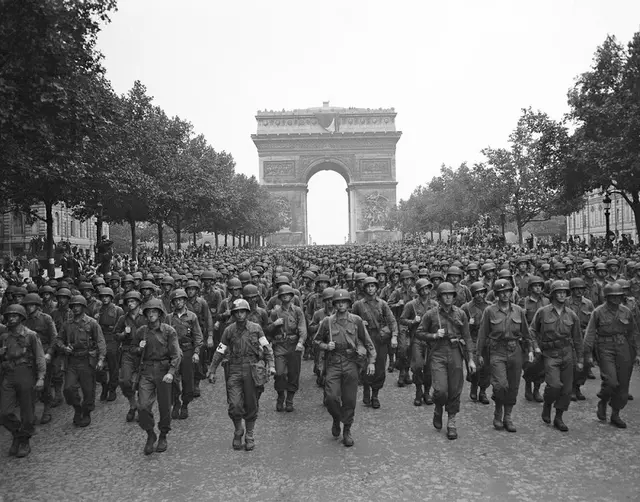Iran and world powers have agreed to meet again over its disputed nuclear program after two days of negotiations in Kazakhstan that Tehran praised as "more realistic."
Though the agreement on new talks suggested potential for advancement, rapid progress in solving the decade-long nuclear stalemate is not in sight. That's because of huge rifts between the two sides and Iran's presidential election, due in June, experts say.
A new round of negotiations over Iran's nuclear program is held in Almaty, the biggest city in Kazakhstan, on Feb. 26, 2013, eight months after the previous talks. The talks between Iran and the so-called P5+1 powers, Britain, China, France, Russia, the United States and Germany, are the first this year. (Xinhua)
Saeed Jalili, Iran's chief nuclear negotiator, said Wednesday that the world powers' attitude toward the Iran situation was "more realisticcompared to what they have in the past."
He said that a continuation of the talks would be "a positive step" toward resolving the differences.
Michael Mann, spokesman for European Union foreign policy chief Catherine Ashton, who represents the six powers in the talks, said the talks were "useful," urging Iran to quickly respond to the revised proposals of the six powers.
The two sides agreed to hold meetings at the level of senior civil servants in Istanbul, Turkey, on March 17-18 and return to Almaty for higher-ranking talks on April 5-6.
EU foreign policy chief Catherine Ashton (L Front) attends the negotiations over Iran's nuclear program in Almaty, the biggest city in Kazakhstan, on Feb. 26, 2013, eight months after the previous talks. (Xinhua)
Considering that their last meeting ended in June without an agreement for further discussions, the continuation of talks was a positive signal for the start of a process.
Ma Zhaoxu, Chinese assistant foreign minister who headed China's delegation to the talks, said the discussions "have brought about tangible progress, which is beneficial to settling the dispute through dialogue."
Ma said that China has made many efforts since it joined the talks in 2006, especially in encouraging realism and flexibility among the parties concerned.
He called on parties concerned to bolster confidence and solve the Iranian nuclear talks through dialogue and consultation with sincerity and flexibility.
Chinese Assistant Foreign Minister Ma Zhaoxu talks to the media in Almaty, the biggest city in Kazakhstan, Feb. 26, 2013. (Xinhua/Zhou Liang)
Despite the positive signal released by the two sides, the Almaty talks did not make any substantial breakthrough, said Yevgeny Satanovsky, head of the Moscow-based Middle East Institute.
Like ever before, Iran is still firm on its right to enrich uranium. Jalili reiterated after the meeting that as a member of the nuclear Non-Proliferation Treaty, Iran had the right to enrich uranium based on its need, which was only for peaceful use.
In the talks, Iran demanded measures aimed at building confidence be taken simultaneously and in a balanced way, so that the Iran's nuclear rights could be preserved, he stressed.
Though the new proposals of the six powers have not been revealed, analysts say they may include an offer to ease sanctions on Iran's gold and precious metals trade and on its banking operations.
Russian Deputy Foreign Minister Sergei Ryabkov told media after the talks that the six countries -- Britain, China, France, Russia, the United States plus Germany -- offered to ease the sanctions regime against Iran if Tehran agreed to steps towards stopping enrichment to 20 percent as well as limiting the operations of its Fordow enrichment plant.
Security personnel check a car entering the delegation venue in Almaty, the biggest city in Kazakhstan, Feb. 26, 2013. (Xinhua/Zhou Liang)
"This is very important -- a lightening of sanctions under a condition," he was quoted by the Itar-Tass news agency as saying.
Jalili, however, said after the meeting that Iran would not shut down its Fordow underground facility, insisting that Iran's rights of uranium enrichment for peaceful purpose should be taken into consideration.
Sergei Demidenko, Russian expert in oriental studies of the Institute for Strategic Studies and Analysis, said the talks, at most, can be regarded as a tactical positive outcome, rather than a strategic one.
Although the two sides demonstrated political will to take advantage of the positive atmosphere to advance the negotiations, they had a long way to break the initial ice, observers say.
Vladimir Evseyev, an expert of the Institute of the World Economy and International Relations, said as Iran's presidential election approaches, raising domestic political tensions, Tehran would make no concessions.
The atmosphere at the next Almaty talks would not be as cordial as this time, he said.
 简体中文
简体中文

